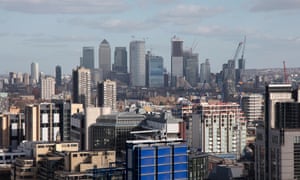
More than 11,400 investors are likely to lose more than £230m in savings due to the collapse of London Capital & Finance after it was announced that only 159 affected mini-bond customers would receive compensation.
The Financial Services Compensation Scheme said it had identified a small group of customers who switched their stocks and shares instant savings accounts into mini-bonds, and therefore qualified for compensation.
The FSCS, an industry-funded body that recompenses customers when regulated financial companies fail, reiterated that it was only able to provide compensation for regulated products, such as stocks and shares ISAs. While LC&F was a regulated company, the mini-bonds it sold were not.
A spokeswoman for the FSCS said it was too early to say how much compensation the 159 customers would receive under the scheme, which covers losses up to £85,000. However, the value of the bonds they held were worth a combined £3.1m, at an average of about £20,000 each. Payouts will be made by the end of February.
Investors who were given misleading advice by LC&F may also be eligible for payouts, but the FSCS warned these would be dealt with on a case-by-case basis.
“[The] FSCS has concluded there will be some customers who were given misleading advice by LC&F and have valid claims for compensation as a result. However, FSCS expects that many customers will not be eligible for compensation on this basis,” the scheme announced on Thursday.
It is the latest blow to the investors, who are unlikely to have their money returned.
The FSCS chief executive, Caroline Rainbird, said: “I regret that LC&F investors impacted by the firm’s failure have been waiting several anxious months to find out whether or not they may be eligible to receive compensation from FSCS.
“I appreciate that the initial decisions and outlook we are announcing today are likely to be disappointing to many LC&F customers. We are, however, working as quickly as we can to establish a suitable process for determining customers’ claims, and expect to be in a position to start this process in the next few weeks.”
LC&F sold £236m of mini-bonds, which promised stellar returns to investors of up to 8% a year. But little of the money went into safe interest-bearing investments, and was instead funnelled into speculative property developments, oil exploration in the Faroe Islands and even a helicopter bought for a company controlled by LC&F.
The investment company collapsed in early 2019, owing money to thousands of customers.
Some customers claim they were misled, including by the Financial Conduct Authority, over whether their investments were protected by the regulator. The City regulator’s enforcement team was also warned three years ago about the company but failed to act.
The government has since launched an independent inquiry led by the former high court judge Dame Elizabeth Gloster into how the FCA regulated LC&F before its collapse.
As 2020 begins…
… we’re asking readers, like you, to make a new year contribution in support of the Guardian’s open, independent journalism. This has been a turbulent decade across the world – protest, populism, mass migration and the escalating climate crisis. The Guardian has been in every corner of the globe, reporting with tenacity, rigour and authority on the most critical events of our lifetimes. At a time when factual information is both scarcer and more essential than ever, we believe that each of us deserves access to accurate reporting with integrity at its heart.
More people than ever before are reading and supporting our journalism, in more than 180 countries around the world. And this is only possible because we made a different choice: to keep our reporting open for all, regardless of where they live or what they can afford to pay.
We have upheld our editorial independence in the face of the disintegration of traditional media – with social platforms giving rise to misinformation, the seemingly unstoppable rise of big tech and independent voices being squashed by commercial ownership. The Guardian’s independence means we can set our own agenda and voice our own opinions. Our journalism is free from commercial and political bias – never influenced by billionaire owners or shareholders. This makes us different. It means we can challenge the powerful without fear and give a voice to those less heard.
None of this would have been attainable without our readers’ generosity – your financial support has meant we can keep investigating, disentangling and interrogating. It has protected our independence, which has never been so critical. We are so grateful.
As we enter a new decade, we need your support so we can keep delivering quality journalism that’s open and independent. And that is here for the long term. Every reader contribution, however big or small, is so valuable.
[“source=theguardian”]
